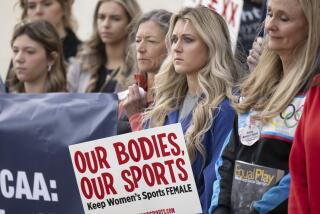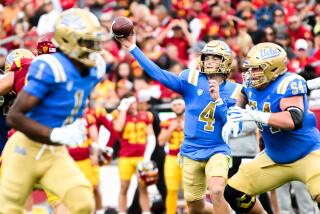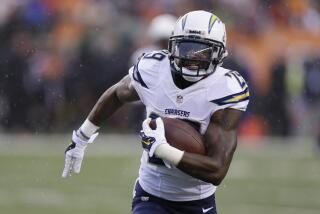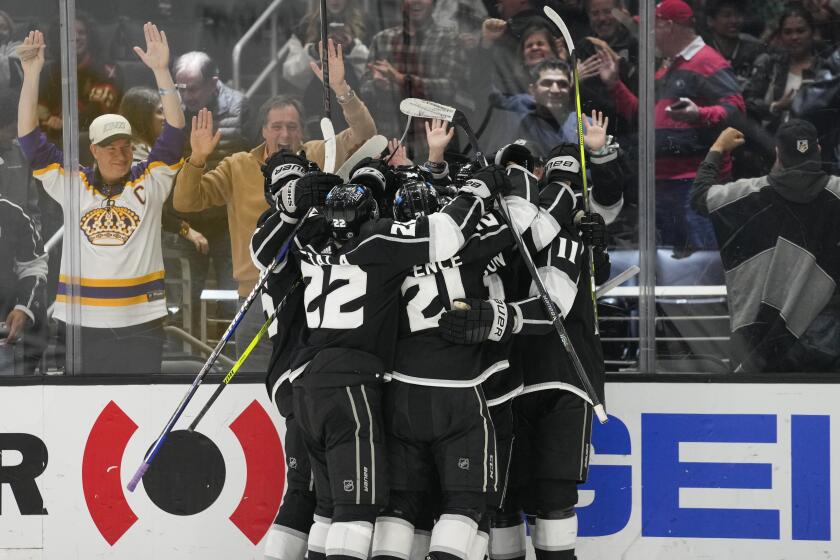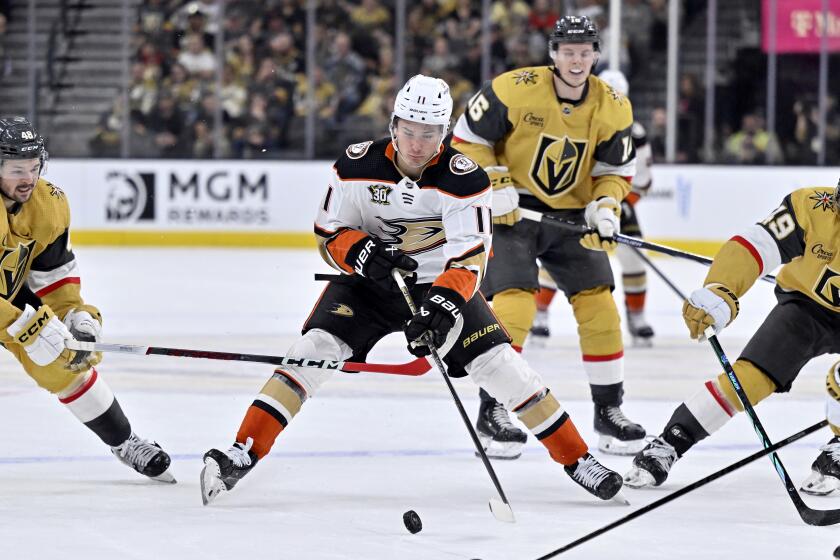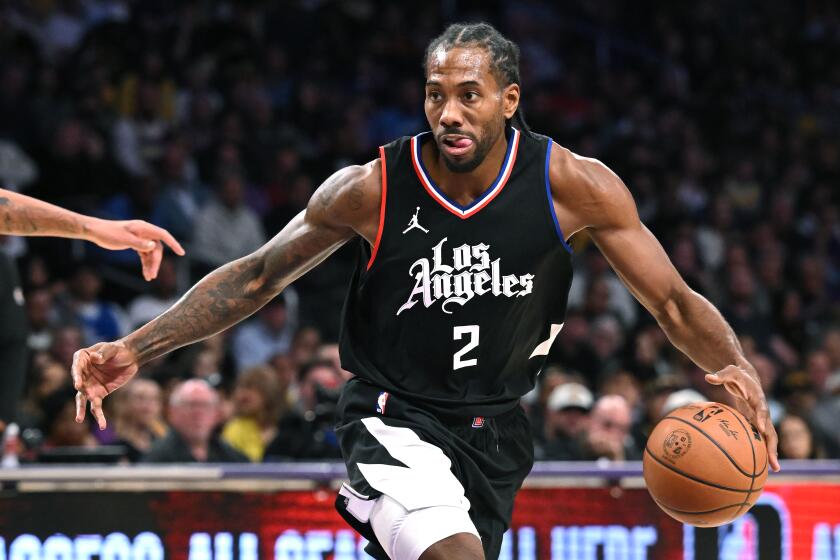O’Bannon takes stand as trial begins in lawsuit vs. NCAA
OAKLAND, Calif. — As a much-anticipated federal court trial began Monday, the walls that for decades have separated college athletes from the riches of a multibillion-dollar sports enterprise began to show some cracks.
The occasion was the opening of an antitrust lawsuit filed on behalf of current and former men’s basketball and football players that seeks an injunction to stop the NCAA from denying athletes the ability to profit from the use of their names, images and likenesses in television broadcasts, video games and more.
Lead plaintiff Ed O’Bannon — a star UCLA basketball player in the 1990s — took the stand first, stating that in contrast to the long-claimed notion of amateurism in college sports, he was foremost an athlete, spending 40 to 45 hours a week on basketball during the season, choosing a major that would fit his schedule and taking his senior finals in a hotel ballroom during the Final Four.
“I was an athlete masquerading as a student,” O’Bannon, 41, now an automobile sales and marketing employee in Las Vegas, said on direct examination. “I was there strictly to play basketball ... and I did basically the minimum to make sure that I kept my eligibility academically so I could continue to play.”
The issues raised — whether student-athletes should partake of a greater piece of the college athletics pie than their scholarships — go far beyond this trial.
Before O’Bannon’s testimony, NCAA counsel announced the association had reached a settlement to pay $20 million in damages in a related case brought by former Arizona State and Nebraska quarterback Sam Keller, who sought compensation for football and basketball players whose likenesses have appeared in NCAA-licensed video games.
It came on the heels of a May 31 settlement in the same case by Electronic Arts and Collegiate Licensing Co., which agreed to a $40 million payout to 100,000 football and basketball players.
And another case soon headed for the courtroom in Oakland aims to end the NCAA’s cap on athletic scholarship amounts, contending they do not cover the full cost of attending school.
The per-season payments in the video-game case will go to every player whose likeness appeared in EA Sports products — now phased out — over the past decade or so. That case alleged the companies had colluded with the NCAA to deny players their rights under state laws to their images and likenesses.
The antitrust issues alleged in the O’Bannon case — that the NCAA has engaged in a price-fixing conspiracy and group boycott, distorting the market — are not directly affected by the settlements. NCAA officials denied that its decision to pay represents a change in the rules that forbid athletes from receiving so-called “extra benefits.”
But the underlying conceit of the 108-year-old NCAA — that players are students first, compensated through their scholarships and overall college experiences — is nevertheless at stake.
“The really big issue is whether the court finds these NCAA (amateurism) rules to be illegal,” said Matt Mitten, director of the National Sports Law Institute at Marquette. “That could bring a very substantial change.”
O’Bannon relayed on the stand that in 2008 a friend’s son showed him an EA video game that included his likeness — a UCLA player with jersey No. 31 who shot with his left hand, was “bald-headed” and shared the same complexion as O’Bannon. The lawsuit followed.
When he signed with UCLA as a 17-year-old, O’Bannon testified, he signed documents without reading them — including a waiver that allegedly gave the NCAA the right to use his likeness — because if he hadn’t, he said, he wouldn’t have been able to play.
In his cross-examination, Glenn Pomerantz, the NCAA’s chief outside counsel, stressed the overall college experience of mentorship and community and the direct benefits of scholarship: tuition, free books, room and board.
Stanford economist and antitrust expert Roger Noll was the second witness, describing what he called the anti-competitive nature of the NCAA’s financial arrangement with its member institutions. Fixed scholarship amounts and denying athletes’ ability to shop their names, images and likenesses, he said, produce a price-fixing agreement that artificially enhances the benefits flowing to the NCAA and its members.
“That’s exactly what a cartel tries to do,” Noll testified.
More to Read
Get our high school sports newsletter
Prep Rally is devoted to the SoCal high school sports experience, bringing you scores, stories and a behind-the-scenes look at what makes prep sports so popular.
You may occasionally receive promotional content from the Los Angeles Times.
